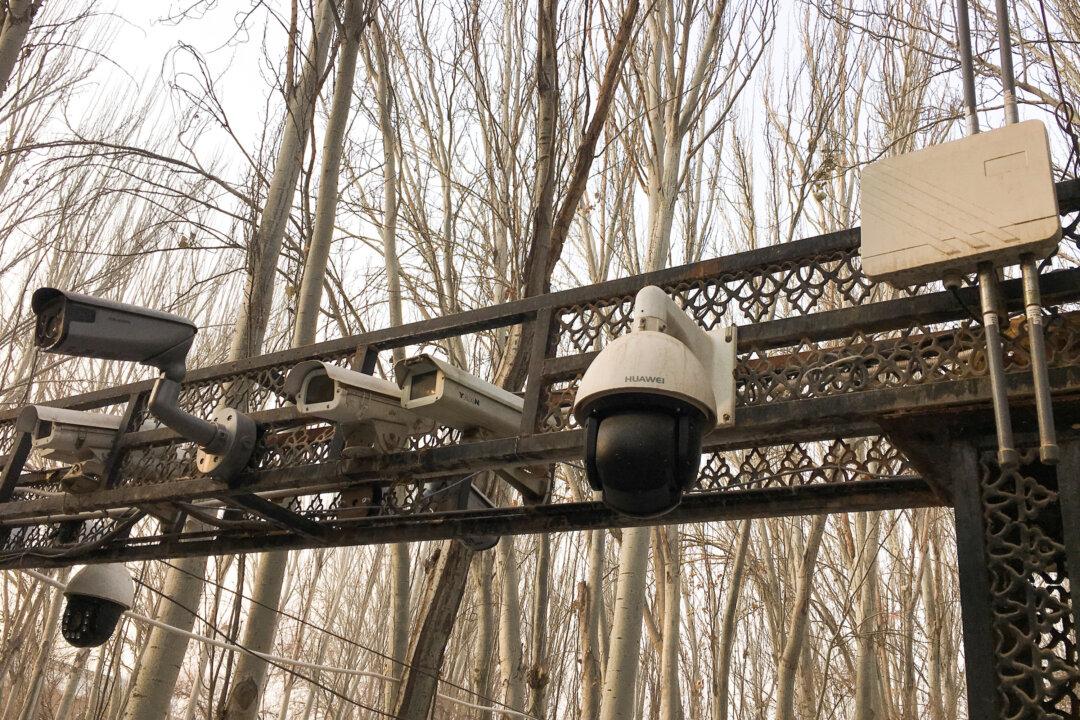The Chinese regime is tracking the movements of more than 2.5 million people in Xinjiang, a region where Uyghurs and other Turkic Muslims are under heavy state surveillance, according to a data leak flagged by a Dutch cyber expert.
SenseNets Technology, a Shenzhen-based tech company that develops facial recognition software, collected about 6.7 million GPS (Global Positioning System) coordinates in a 24-hour period through its surveillance camera system, according to Victor Gevers, co-founder of the cyber security nonprofit GDI.Foundation.
Gevers first noted the vulnerability in a series of online posts on his Twitter account on Feb. 13.
The location data points were linked to names, ID card numbers, birth dates, addresses, photos, and employers, and were also tagged with descriptions such as “mosque,” “hotel,” “internet cafe,” and other places where surveillance cameras were likely to be found.
“This insecure face recognition/personal verification solution is built and operated for only one goal,” Gevers wrote on Twitter. “It’s a ‘Muslim tracker’ funded by Chinese authorities.”
The information was stored on a SenseNets database that was accessible for months and was uncovered by Gevers.
“It was fully open and anyone without authentication had full administrative rights. You could go in the database and create, read, update, and delete anything,” said Gevers.
Mass Surveillance
The Chinese regime, in recent years, has detained an estimated 1 million Uyghurs and other Muslim minorities in internment camps in its northwest Xinjiang region, where they undergo political indoctrination and are forced to denounce their faith. Former detainees have reported cases of torture, forced medication, and rape.Louisa Greve, director of external affairs at Washington D.C.-based advocacy group Uyghur Human Rights Project, said in an email that the data leak was “proof of the breathtaking scale, and the government’s use of the Uyghur homeland as a laboratory of repression.”
Beyond the camps, more than 10 million Uyghur and other Turkic minorities in Xinjiang are subject to monitoring via a dense network of surveillance systems and security checkpoints, where their electronic ID cards are scanned.
The region has served as a testing ground for sophisticated forms of mass surveillance and control, made possible by the newest developments in digital technology.
Advanced facial recognition software allows police authorities to track the movements of just about every person through an extensive system of security cameras. There have also been reports of Chinese authorities collecting blood and saliva samples from Xinjiang residents for storage in state DNA databases, as well as fingerprints and voice samples.
The communist regime has used the pretext of “extremist threats” to justify its tight control of the region.
Last year, the U.S. Congress banned government agencies from buying surveillance products made by Hikvision, China’s leading manufacturer of surveillance cameras. Hikvision has collaborated deeply with Beijing to develop AI-enhanced technology for monitoring its citizens, including in Xinjiang.





